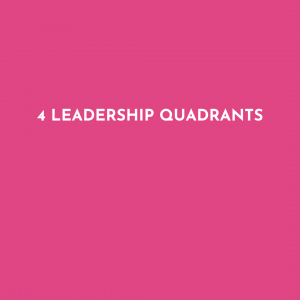Executive coaching has become increasingly popular in recent years. More and more professionals are turning to executive coaching in order to advance in their careers and further the profitability, efficiency, and effectiveness of their organisations. Many qualified therapists offer executive coaching services, and psychologists from all over the world are researching the practice to determine how effective it is and how it can be improved. But, it’s important to note that executive coaching isn’t therapy.

To help you understand what executive coaching is, and what it takes for a successful coaching experience, let’s take a closer look at the psychology behind it.
How Does Executive Coaching Really Work?
First and foremost, the strength of the relationship between the client and the coach largely determines how successful the process will be. A good, qualified executive coach is someone who is fully aware of the fact that this success depends on the relationship they are building with you. Every executive coach will invest a lot of time and effort into building a solid foundation for that relationship.
The coach is able to nurture both the confidence and the ego of a client when the relationship between them and their client is strong. But a good coach-coachee relationship doesn’t depend on personality matching. Many individuals who are undergoing executive coaching (or plan to) mistakenly believe that the merits of the coach’s personality, and how compatible it is with their own, has a huge impact on their coaching experience.

However, there is no clear evidence that personality matching can have a significant impact on coaching effectiveness. Because of this, experts recommend that individuals select a coach based on what they need, and not based on whom they like. This is not to say that personal attributes of the coach are irrelevant. For instance, an executive coach needs to have strong self-management skills (the ability to control their own reactions and emotions).
Psychological Principles in Coaching
Many professional therapists, training practitioners, HR professionals, and corporate executives and consultants have had plenty of success as executive coaches. But therapists often have some advantages over executive coaches from different backgrounds.

Thanks to their training in understanding human behaviour, change, learning, and motivation, psychologists have been a major supply source for executive coaches. Executive coaches who have training in psychology may use their knowledge of human behaviour as well as their education to guide their coaching.
However, for a coaching psychologist to be a successful executive coach, they need to be able to link their consulting skills with industrial-organisational skills—without actually crossing the line between coaching and therapy. According to one article from the Consulting Psychology Journal, most coaching psychologists cite cognitive behavioural therapy as a key principle they use in coaching. Other psychological principles that executive coaches often leverage include:
- Positive psychology
- Behavioural psychology
- Organisational theory
- Emotional intelligence
- Leadership theory
Developmental Methodologies
Executive coaches, regardless of their background, mostly use the following coaching methods and techniques in their coaching sessions:
- Goal-setting and action planning
- Conversational techniques such as powerful questions and active listening
- Feedback and consultative problem solving
- Brainstorming
- Motivational interviewing
- Self-reflective homework assignments
Executive coaches that are also qualified coaching psychologists also use cognitive restructuring techniques. These techniques are related to cognitive behavioural theory.
Assessments
Generally, executive coaches use a variety of assessments in their engagements. For starters, an executive coach interviews both the coachee and their coworkers. These interviews provide valuable insights that can benefit the coaching engagement.

Then, an executive coach may employ climate surveys, 360 feedback surveys, style assessments, and commercial personality assessments.
Coachee Behaviour: A Critical Factor for a Successful Coaching
Engagement
Again, it’s important to understand and emphasize the difference between therapy and coaching. Executive coaching works toward a higher level of functioning within an organisation while therapy works to help someone understand and achieve emotional healing.
For executive coaching to work, the coachee already needs to exhibit behaviour that is in line with good emotional and psychological health. Coachees that benefit from executive coaching generally share the following characteristics:
They Own Their Part
When things go wrong, is the leader quick to defend themselves, blame others, or even let their team take the hit? Or do they take responsibility right away? The most coachable executives are the ones who will acknowledge their mistakes without hesitation.

Coachees demonstrate the fundamentals to coachability when they demonstrate self-awareness and accept the need to continually grow and learn. When the coachee is willing to see the impact they have on others (negative as well as positive), coaching is most effective.
They Are Engaged in the Selection Process
Researching and interviewing potential coaches takes time and effort. Executives that are more than willing to proactively and diligently search for the right executive coach are the ones who are the most coachable. A coachee that understands why they need an executive coach and the key role the coach will play in their career will benefit the most from executive coaching.

For some, executive coaching can be daunting. Not all executives are willing to work with an executive coach. If a coachee considers executive coaching to be something positive, they will be willing to do the work of selecting a trusted executive coach. This is a sign of confidence in a leader’s coachability.
They Are Willing to Sacrifice Their Time
When we are not quite willing to try something that we know is good for us, we will come up with a dozen excuses. And, lack of time is likely the most abused excuse of all. Most executives are busy workaholics, so it’s easy to reach for this one. But an executive that is really ready for coaching will always find time for it. To make room for this important work, they will adjust and trim their schedule.
Busy yet willing executives are committed. They will adjust their full calendar, even if it takes them a while to find a way to do it. Those who don’t really want professional development can’t shoehorn it into their calendar.
They Are Ready To Be Vulnerable
Executives who want to try coaching should be ready to reflect on questions that will push them into real change. They should be willing to dig into uncomfortable topics. Coachable leaders are the ones who know that good questions are often better than good advice.

Below the surface of our behaviour, beliefs and assumptions are lurking. And the greatest executive coaches help their clients see these hidden drivers as they really are. But, for a coachee to get the most out of this process, they need to show this vulnerability. A coachable executive is also someone who:
- Wants to grow their career
- Has curiosity
- Reflects on the sessions
- Trusts their coach and their expertise
- Works on planned activities in between sessions
- Tries to build what they learned into everyday work
Why You Need an Executive Coaching Consultancy Now, Not Later











